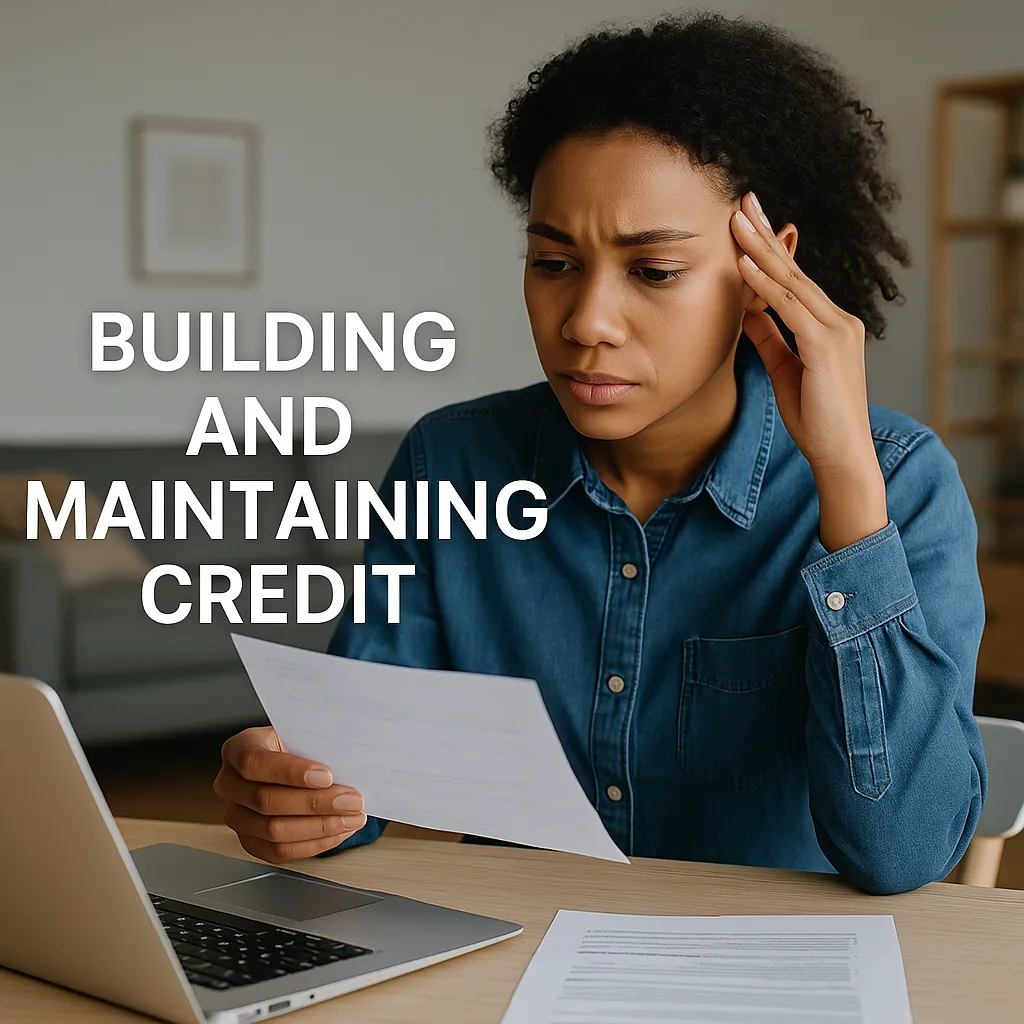
Building and Maintaining Credit: Answers to Your Biggest Questions
Confused about credit? You’re not alone. Here’s how to finally understand your score, avoid common mistakes, and take control of your financial future.
For a lot of people, credit feels like a mysterious game where no one ever explained the rules. You make a move (open a card, pay a bill, close an account) and your score changes — but you’re not really sure why. The truth is, credit isn’t a game at all. It’s more like your financial report card, and once you know what the teacher (the credit bureaus) are grading on, you can start scoring better.
Let’s break down the top credit questions and frustrations I hear all the time — and give you clear, real-world answers you can actually use.
Understanding the Basics: Credit Scores vs. Credit Reports
FAQ 1: What’s the real difference between a credit score and a credit report?
Think of your credit report as your financial report card. It lists your history with loans, credit cards, and payments. Your credit score is the grade that comes from that report. It’s usually between 300–850, and it tells lenders at a glance whether you’re a reliable borrower.
👉 Quick tip: You don’t have just one score. Different models (like FICO or VantageScore) exist, but they’re all based on the same report data.
FAQ 2: What actually goes into my credit score?
Here’s the “secret formula,” broken down:
Payment History (35%) – Do you pay bills on time?
Amounts Owed (30%) – Are you maxed out, or do you keep balances low?
Length of Credit History (15%) – How long have you had credit?
New Credit (10%) – Have you applied for lots of new accounts recently?
Credit Mix (10%) – Do you have different types of accounts (like a car loan + credit card)?
👉 If you only remember one thing: paying on time and keeping balances low are the biggest score boosters.
Building & Improving Credit
FAQ 3: How can I build credit if I have no credit history?
It feels like a “chicken and egg” problem — you can’t get credit without a history, and you can’t build history without credit. Here’s how to start:
Secured Credit Card: You put down a deposit, and the bank gives you a small credit line.
Authorized User: Get added to a trusted family member’s card. Their good history helps build yours.
Credit-Builder Loan: A small loan designed specifically to establish positive payment history.
FAQ 4: How can I actually improve my low score?
Here’s the focused to-do list:
Pay every bill on time (set up autopay or reminders).
Keep balances below 30% of your limits (lower if possible).
Don’t close old accounts (your history matters).
Stop applying for lots of new credit at once.
FAQ 5: How long does it take to see improvement?
Think marathon, not sprint. Some changes (like paying down high credit card balances) can boost your score in 30–60 days. But recovering from late payments or collections takes longer. The key is consistency.
Managing Credit & Debt
FAQ 6: Is it bad to have a $0 balance on my credit card?
Nope! A $0 balance is great because you avoid interest. Just don’t let the card sit unused for too long. Issuers can close inactive accounts, which can hurt your score. Solution: put a small subscription (like Netflix) on the card and autopay it monthly.
FAQ 7: Will checking my credit score lower it?
No. Checking your own score is a soft inquiry — it doesn’t affect your credit at all. Only hard inquiries (when you apply for a loan or card) can cause a small, temporary dip.
FAQ 8: How do I fix an error on my credit report?
Mistakes happen — and they can drag down your score unfairly. Here’s how to dispute:
Get your free reports from AnnualCreditReport.com.
Highlight errors (wrong balances, accounts that aren’t yours, etc.).
Dispute in writing with both the bureau (Equifax, Experian, TransUnion) and the company that reported the info. Keep copies of everything.
Final Word
Building and maintaining credit isn’t about perfection. It’s about consistency and awareness. Pay on time, keep balances low, and check your reports regularly — and you’ll see your score climb.
The truth? Good credit isn’t about playing a confusing game. It’s about knowing the rules and making them work for you.
Ready to Take the Next Step?
If buying a home or refinancing is in your future, your credit score is one of the biggest keys to getting the best loan options. Let’s review where you stand and map out a strategy to make your credit work for you.
NMLS #1720882 | For licensing information, visit NMLS Consumer Access
Disclaimer: This information is for educational purposes only and not legal, financial, or credit advice. Always consult a qualified professional before making financial decisions.
